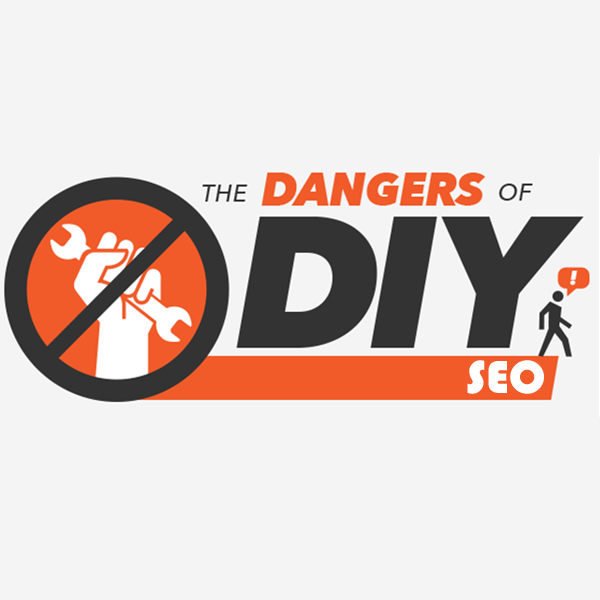The internet is flooded with articles claiming SEO is dead (again). Thanks to Google’s most recent three updates – Penguin, Panda, and Hummingbird, the mantra around the ‘net has become, “Create epic content. Focus on keyword themes, not keywords themselves. The links will come naturally. And the visitors will come naturally. Thus, your rankings will increase naturally.” Sounds easy enough, right? If that’s all it takes, why the heck would you pay for SEO? All anyone needs to do for a little DIY SEO is to build a great site, create lots of good content, and all will be will with the world. Right?
So imagine how confusing it can be to webmasters who attempt this type of DIY SEO, only to learn that Google can’t index their website or won’t index their website, and their traffic crawls to a standstill.
There was a time when SEO was ridiculously easy. You could just slap a million keywords onto a page, buy a ton of links for cheap, and presto! Your rankings would skyrocket. Well, those days have gone the way of the CTR monitors and dial-up internet connections. SEO is complicated, nuanced, time consuming, and even a bit tricky. The rules are constantly changing, and strong SEO can be a very slow burn.
Still, many webmasters read a few articles about SEO, follow a few “gurus” on social media, and they are led to believe that they can save a lot of money by doing a bit of DIY SEO. And while freeing up a line item in your marketing budget may seem incredibly attractive, many website owners learn the hard way that DIY SEO is not as easy at it sounds.
If You Aren’t Up To Date, You Could Be Hit With A Penalty (Or Worse)
Most DIY SEO disasters begin with the website owner performing some very simple internet searches and (innocently enough) landing themselves on an outdated or black hat SEO website. And most times, that innocent searcher takes the advice of the first source they landed upon, in an effort to get the project started.
Google prides itself on “freshness,” rewarding the most up-to-date articles with higher rankings. The problem is, this isn’t always the case. Lots of older articles get ranked well, and this can create huge problems if you’re new to SEO. Google’s algorithm is always changing, and what was recommended just a few short months ago could land you in hot water today. And if you haven’t been involved in SEO for that long, you don’t know which advice is good and which advice is just plain terrible. Randomly selecting articles from a search engine query probably isn’t the best idea.
If you follow the wrong advice, you could face a penalty from Google, or worse, your site could get banned all together. And you’ll have to pay 2-3 times the money you saved by attempting DIY SEO on getting it all fixed.
The Time You Spend On DIY SEO Costs Money
The time you spend learning SEO, incorporating it into your website, and analyzing results is going to add up, especially in the beginning. The learning curve for SEO is huge, and many people don’t take that into consideration when they attempt a DIY SEO project. What would take you three hours to do, might take an SEO expert one hour (or less). Just as you can have success with DIY SEO, saving time, money and effort, you can also cost your business in time, money and effort.
And if you make an attempt at DIY SEO, and your traffic takes a hit, you’re probably going to have to hire a pro anyway. You may find yourself having to not only pay an SEO pro to analyze what happened, but also having to pay a web developer to carry hours of work to correct the issue.
Creating Great Content Is Hard
Content creation is the cornerstone of good SEO. Your content must be useful, interesting, unique, and worth sharing. Many DIY SEO newbies think that all they have to do is create new content every day, and they’ll be set. But that’s not what creating great content is about.
Yes, Google rewards fresh content. The more regularly you update your site with new blog posts, downloadable resources, and video, the more often your site will be crawled. But this does not mean you have to add new stuff every day just for content creations’ sake. In fact, posting something new every day can actually hurt you in terms of your audience. If you’re following the DIY SEO route and you’re creating your new content all by yourself, you’re probably not developing very insightful posts. If you can’t keep your audience engaged, they will not share your content, and they’ll eventually leave you.
But the biggest mistake do-it-yourselfers make is ripping off content from other websites. It’s very tempting. Coming up with new ideas each day is hard. But if you get caught plagiarizing, Google will thump you, and thump you hard.
Creating great content is about planning. You have to create an editorial calendar and have a purpose for every new piece of content you develop. You have to be insightful and be able to consistently bring new ideas into the greater conversation. This is why it can be so beneficial to work with an agency. They have full teams of people who can develop your calendar for you, and can create different types of content to keep your visitors interested. And you won’t have to worry constantly coming up with ideas or the temptation of stealing someone else’s.
Being Too Creative Can Hurt You
We know how awesome Flash can be. Swirling images. Animation. Beautiful scenery. And Flash can be a great addition to your website. Unfortunately, search engines aren’t people like us. They are robots. And they can’t see Flash. They cannot understand Flash. And they cannot crawl Flash. A website developed entirely in Flash cannot be indexed no matter what type of SEO tactics you employ.
Image-only sites can also be a problem for robots. Search engines need lots of text in order to understand just what your site is about. You should use Alt tags on every image, but if your site is image-only, this could result in a keyword stuffing penalty. And Alt tags alone will not help your website rank with semantic search. So even though a Flash and image website may be beautiful, it won’t do a darn thing for your SEO.
All SEO Takes Knowledge And Time
Most website owners are looking for the same thing – a fast route to better rankings without having to shell out very much money. Unfortunately, there is no silver bullet that will skyrocket you to the top of SEO results. And whether you try to go the DIY SEO route or you hire an agency, you’re going to have to have a little skin in the game. The best investment you can make when it comes to SEO is staying educated. Don’t blindly jump into DIY tactics, but don’t blindly jump into bed with an agency, either. Do your research, stay on top of internet marketing trends, and always remember that good SEO takes time.
Have you tried DIY SEO in the past? What were some of the pitfalls you encountered? Let us know by leaving a comment below.

